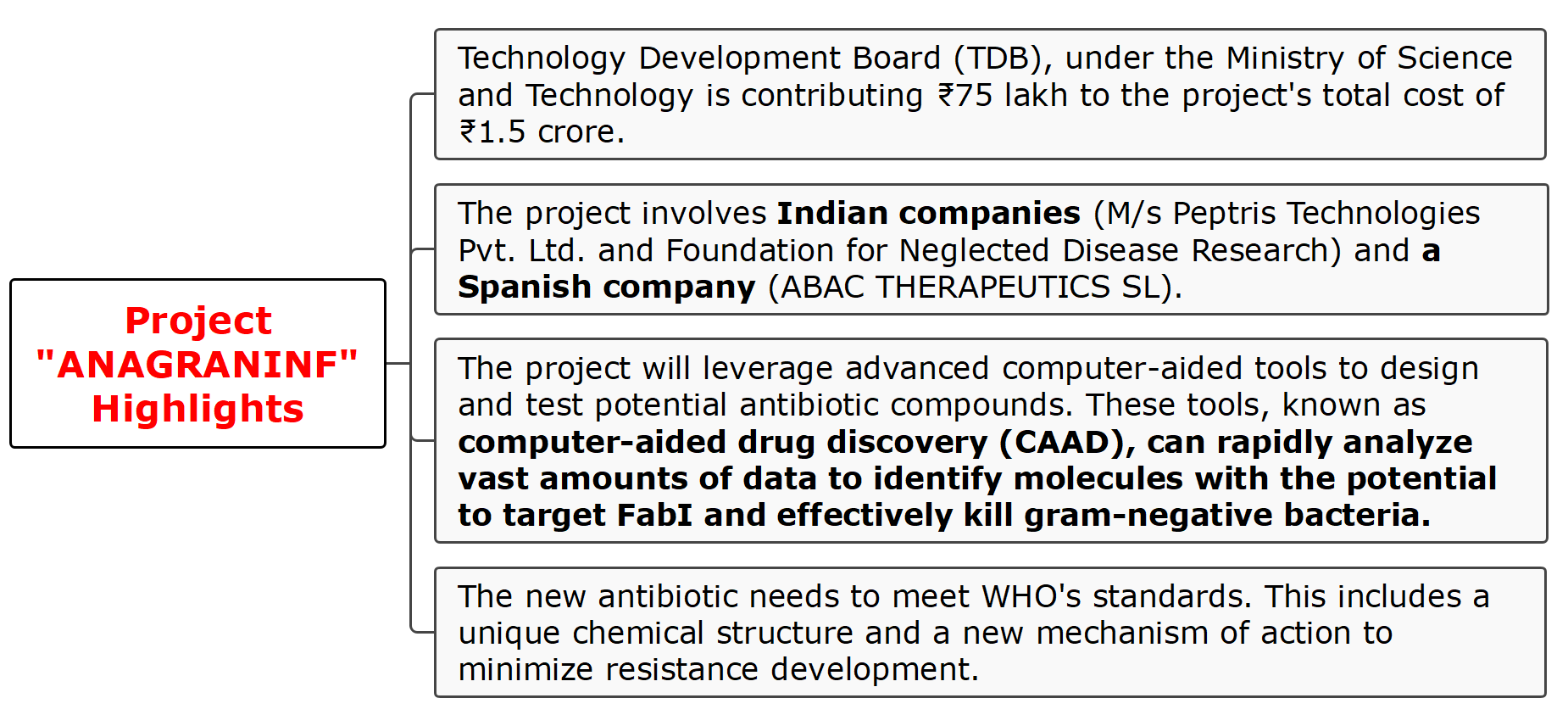Free Courses Sale ends Soon, Get It Now


Free Courses Sale ends Soon, Get It Now



Copyright infringement not intended
Picture Courtesy: https://www.waxmancancer.org/our-research/what-a-project-costs/
Context: The Technology Development Board (TDB), under the Department of Science and Technology, has signed an agreement for the project "ANAGRANINF - Development of Antibiotics Against Gram-Negative Bacterial-Infections."
About Project ANAGRANINF
|
GRAM-NEGATIVE BACTERIA: https://www.iasgyan.in/daily-current-affairs/gram-negative-bacteria |
Project Goals
Significance of the Project

|
PRACTICE QUESTION Q. What is the primary objective of the ANAGRANINF project? A) Development of a novel class of antibiotics against gram-positive bacterial infections. B) Development of a novel class of antibiotics against fungal infections. C) Development of a novel class of antibiotics against gram-negative bacterial infections. D) Development of antiviral drugs against respiratory infections. Answer: C |
© 2024 iasgyan. All right reserved